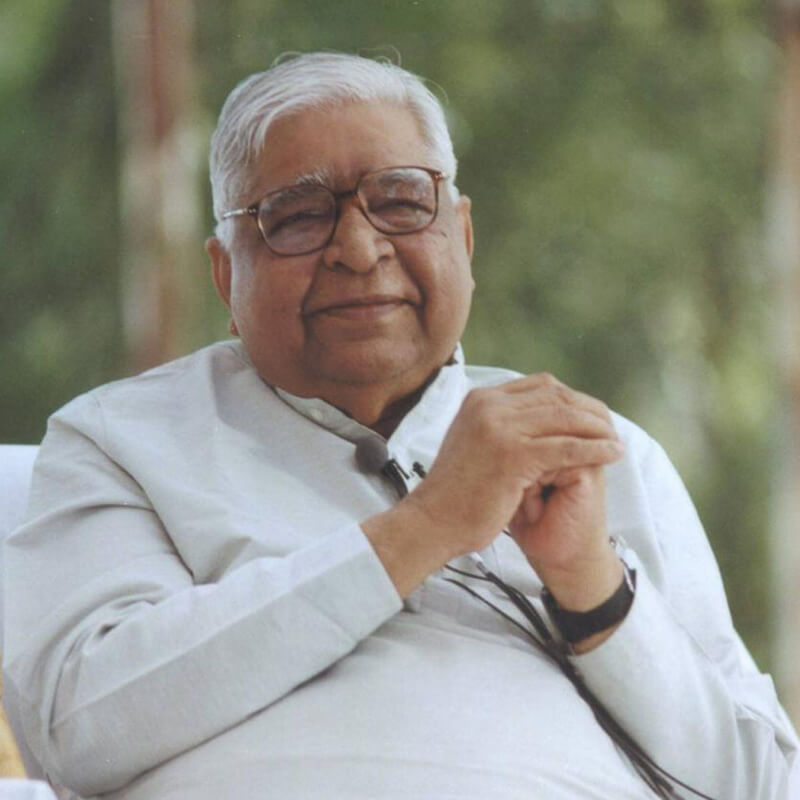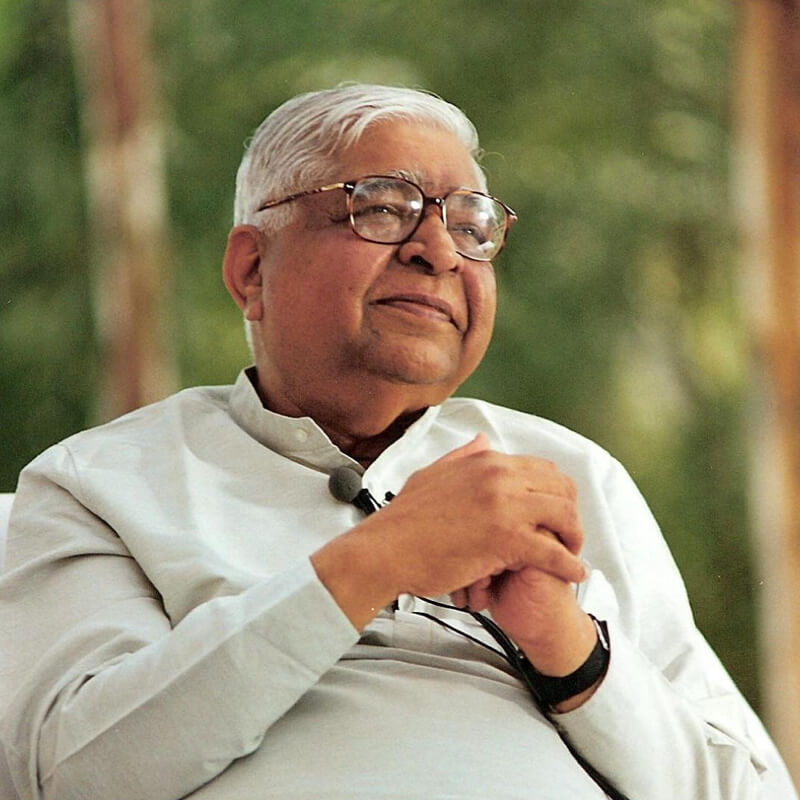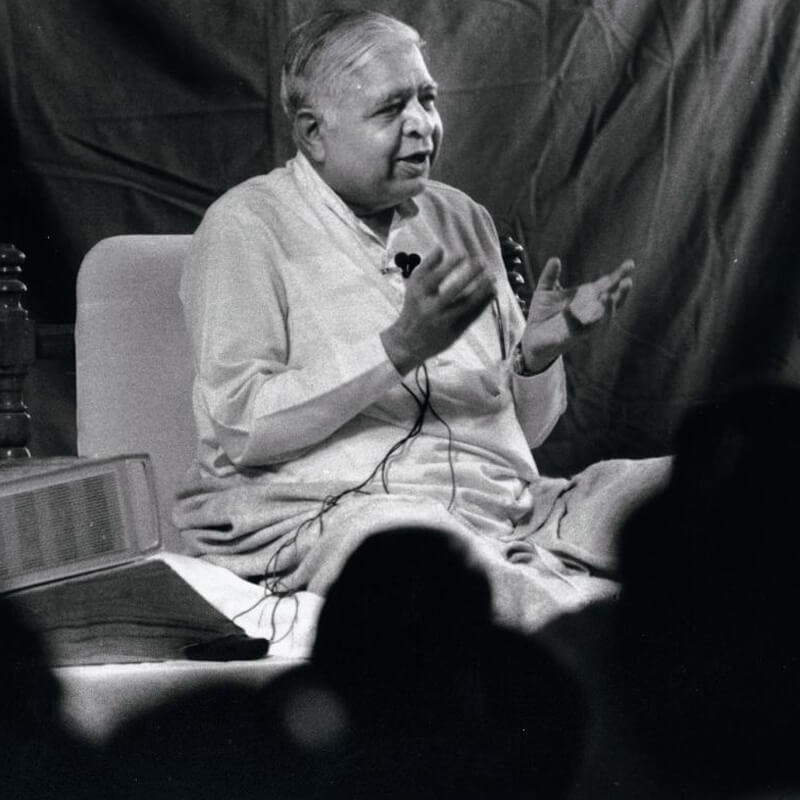(The following is a translation of Lokguru Buddha' by S. N. Goenka)
What knowledge did Gotama the Buddha have of the difficulties and complexities of household life? As a prince, he renounced the household life immediately after the birth of his son, Rahula, and lived the life of a homeless recluse. He did not live as a householder himself, so how could he teach others about the duties of household life? Since the Buddha lived the life of a recluse for forty-five years, he understood the problems of recluses very well and so his teaching was very useful for them. His only teaching to householders was that they should abandon the bondage of household life and become monks or nuns. Consequently, a large number of householders became recluses. So, by following his teaching, householders may become good recluses but they can never become exemplary householders.
Many people in India harbor this misconception about the Buddha. I too was a victim of this delusion for many years. At the age of 31, I came in contact with the beneficial technique of Vipassana that had been taught by the Buddha. I was immensely benefited by it. Nobody asked me to become a bhikkhu (monk).
My revered teacher, Sayagyi U Ba Khin, was an ideal householder. Sayagyi U Ba Khin's teacher was also a householder and millions of people in Myanmar who are followers of the Buddha are householders. Bhikkhus make up less than one percent of the population of Myanmar.
After benefiting from Vipassana and finding it completely faultless, I began studying the original words of the Buddha. I discovered that although the Buddha had given many discourses to bhikkhus on living ideal lives as recluses, he had given several discourses to householders on living ideal lives as householders. And all his discourses on meditation were applicable and beneficial to both.
So it is totally false to say that the Buddha was a teacher of bhikkhus alone. His teaching was for all: householders and recluses, men and women, kings and paupers, the wealthy and the poor, scholars and the illiterate, children and the elderly-speaking any language and of any country. Truly, the Buddha was a World Teacher.
Prince Siddhattha married at the age of 16 and left the household life at the age of 29. During those 13 years, he must have experienced many of the complexities of household life. After he became the Buddha, he came in contact with a large number of people, which exposed him to many more issues about household life.
After attaining enlightenment, the perfection with which this great person understood the difficulties of household life and offered practical solutions to people, is unparalleled in human history. The discourses that the Buddha gave to householders are not just for the followers of a particular religion but for everyone.
One who makes even a cursory study of the Buddha's discourses will appreciate how beneficial they are for householders.
A householder understands that the experience of the highest happiness is possible only by transcending all the suffering of the worldly life and attaining nibbāna. But on the journey to the final goal, it is possible to face the vicissitudes of daily life with an equanimous mind. Vipassana meditators learn to progress in Dhamma while carrying out their worldly responsibilities. By practicing Vipassana regularly, a good householder realizes from experience that living a wholesome life results in happiness and harmony, not only for oneself, but also for others.
A Vipassana meditator begins to understand the eternal law of nature, of cause and effect, not merely at the devotional or intellectual level but also at the experiential level. As the seed is, so the fruit will be. As the action is, so the result will be. Good deeds will yield sweet fruits; bad deeds will yield bitter fruits. Whether one believes in this eternal law of nature or not, one's existence is bound by these laws. If a person falls from a height, he may break his limbs or lose his life, even if he does not believe in the law of gravity.
Whoever practices this scientific technique taught by the Buddha - whether a recluse or a householder-begins to clearly understand the law of kamma, the law of cause and effect. One understands, my present circumstances are the cumulative result of my past and present kammas. I am responsible for my present stock of kammas. No one else can help me to escape its consequences.
We are responsible for our happiness or unhappiness now and in the future. Whether we accept or reject this law of cause and effect, the results will still follow according to this law.
The Buddha gave the beneficial technique of Vipassana to enable the ordinary householder to become an exemplary individual by developing morality, concentration of mind, and wisdom. Society changes for the better only when individuals change for the better. The greatness of society depends on the greatness of individuals. The Buddha gave a practical teaching to enable the individual and the community to live an ideal life, and showed the way for the development of an ideal human society.
Three Unwholesome Practices:
At the time of the Buddha, three kinds of unwholesome practices were widespread, which caused immense harm to society.
1. Animal sacrifice:
Initially, satvika yajnas were wholesome ceremonial offerings. During these yajnas, the ruler as well as the rich distributed wealth to the needy. However, tempted by false assurances of gaining heaven after death, the practice of animal sacrifice was added to these yajnas. People strayed from the noble quality of natural compassion towards all creatures.
With great compassion, the Buddha opposed this wrong practice that had become prevalent in society. During his lifetime, the rulers, merchants and priests gradually stopped this cruel practice of animal sacrifice. Within a few centuries after the Buddha, this unwholesome practice that had been customary in the name of yajna ended completely. However, even in present times, animals are sacrificed to please a god or goddess in some parts of India.
2. Human slavery:
During the time of the Buddha, rearing animals and selling them to the butcher was widespread. The Buddha exhorted householders not to practice this wrong livelihood. Even worse was the inhuman practice of enslaving people and selling them. Sometimes people bought young women as slaves for immoral purposes. In the literature of those days, we find many accounts of male and female slaves, along with servants and attendants, in the houses of rulers and wealthy householders. We also find accounts of ornamented cows and female slaves being given as alms or gifts. How could anyone take care of so many slaves? Therefore, they were sold, and thus, the slave trade flourished. The Buddha prohibited this livelihood for householders, and as a result, this practice of slavery was greatly reduced, and later ended completely. However, the new incarnation of slavery in the form of bonded labor remains, and is yet to be eradicated.
3. Caste System:
The third harmful practice was discrimination based on birth. A person living a totally immoral life was considered to be pious and of high status because he was born in a particular caste. Similarly, a person living a moral life was considered to be inferior, of low status or even an untouchable because of birth in a particular caste. When caste was given so much importance, living a moral life became secondary.
The Buddha worked tirelessly to get rid of the harm caused to Dhamma by this social evil and was successful to a great extent. He explained that one who is born of a human mother will be a human, not an animal or bird or reptile. If he is immoral, corrupt, wicked, he is an outcast; if he is moral, virtuous, righteous, he is worthy of respect. A person who does immoral deeds should be considered as inferior and an outcast; if the same person develops wisdom and becomes moral and righteous, he should be respected.
Similarly it is wrong to consider an immoral person to be of high status merely because he is wealthy. The only yardstick for high status and respect in society should be whether one is living a life of Dhamma. For a householder, it is essential to earn a living honestly by working hard and with intelligence. It is equally important to live an ethical life and to make proper use of wealth that one has earned. This alone can make human life successful and meaningful.
Unfortunately, within a few centuries after the Buddha, the dangerous snake of casteism again raised its head and has entangled the entire society in its destructive coils. Centuries later, India is still suffering from the adverse effects of this poison. If the Buddha's teaching, which gave all importance to moral conduct had been followed, the state of the country would have been completely different.
The Buddha opposed animal sacrifice in the name of Dhamma, discrimination based on birth, and trade of slaves as well as of animals. The eradication of these three evils was essential for the re-establishment of Dhamma then and is equally necessary today. For an ideal household life and an ideal human society, it is essential to have compassion towards all creatures and to have equality among all people. The teaching of the Buddha to householders, for the establishment of an exemplary human society, is an invaluable gift for the entire world.
Human beings may make claims of supremacy over earth, water and sky but as long as they do not establish mastery over their own minds, they remain defeated. The Buddha has taught an effective technique that can be used to gain mastery over oneself. Practicing Vipassana, each individual can gain insight into their own nature, establish mastery over their own mind, and reform their undisciplined nature, thus benefiting themselves and others. This is the greatness of the Buddha's universal teaching to householders.
Emperor Asoka and national security
Two hundred years after the Buddha, an exemplary emperor of India, Emperor Asoka, strongly supported the universal teaching of the Buddha. This enabled the formation of an ideal society. The influence of the Buddha's teaching spread not only to the neighboring kingdoms, but also to distant lands. Besides, Emperor Asoka presented an illustrious example of an ideal ruler, one who did not attack weaker neighboring kingdoms merely to fulfill his imperial ambitions.
However, Emperor Asoka was constantly alert about the security of his empire and maintained a powerful defensive army. He protected and nurtured his subjects like his own children. This glorious example of the ideal way to fulfill the duties of a ruler was exemplified by him because he applied the practical teaching of the Buddha. He also set an admirable example of establishing strong friendly relations with the neighboring kingdoms, the enduring influence of which can be seen even now, centuries after his rule.
Vipassana has been accepted by hundreds of thousands of people from all religions and social strata all over the world in the past three decades. However even now, some people, on hearing about Vipassana, frown and say that it is Buddhist. I feel great compassion towards such people. The false propaganda of centuries has spread so much darkness! Is living a moral life, gaining mastery over the mind, and purifying the mind by developing insight the monopoly of only the Buddhists? Is living such a life unacceptable to others?
Let us brush away the cobweb of misconceptions about the teaching of the Buddha. He investigated the universal eternal practical truth before teaching it to householders. Let us gain mastery over the mind and fill our family life with happiness, harmony, and contentment, and at the same time, share this happiness with others. This will result in an ideal human society.





